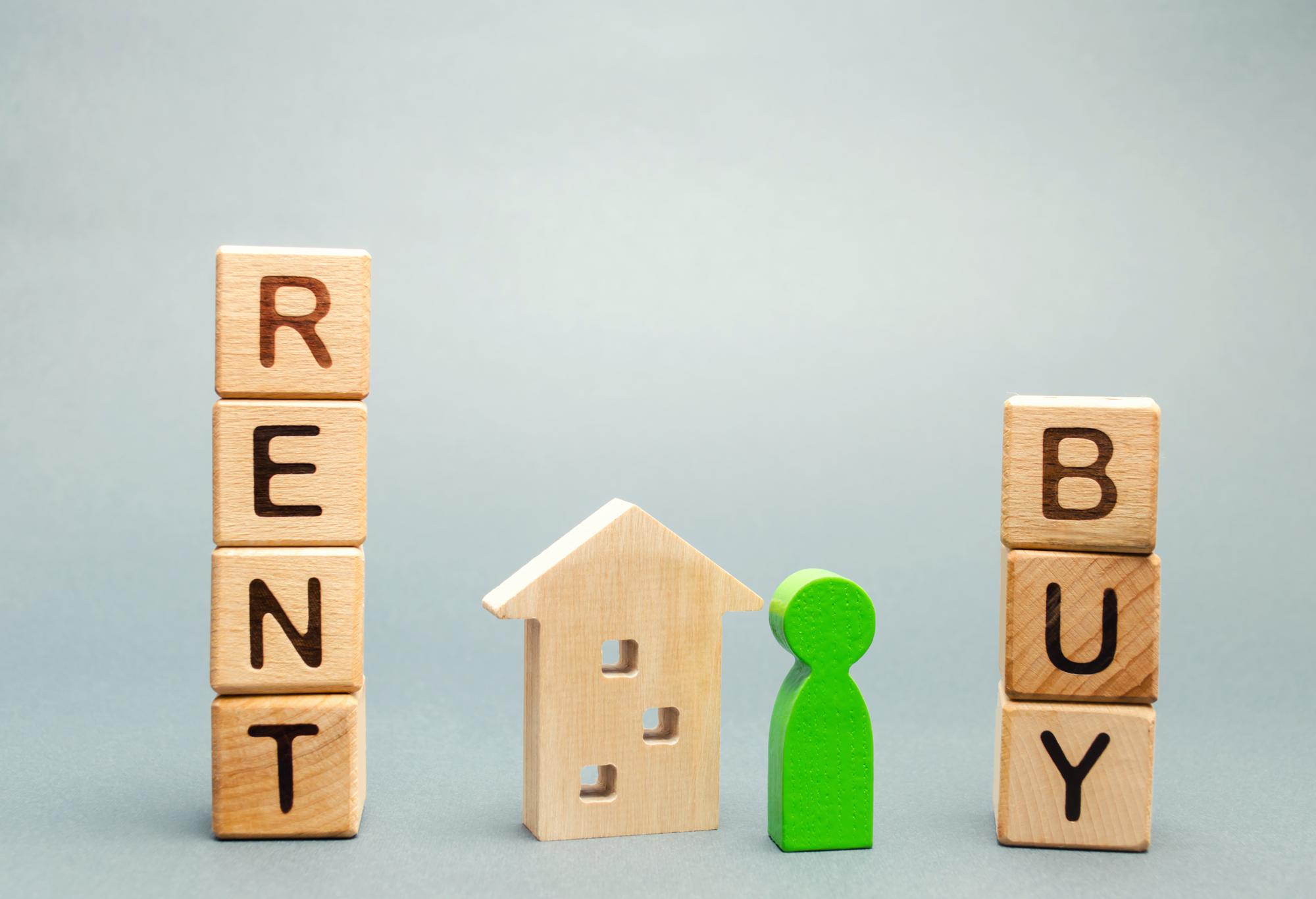Renting a Home Vs Buying a Home Is a Popular Question to Ask a Realtor
As I’m showing homes to new clients, I am often asked if it’s better to rent a home, if that’s an option, or if it’s better to buy a home. I realize the decision to rent or buy a home can be overwhelming. It’s a big financial decision that should be based on your unique circumstances and lifestyle goals.
Sometimes when you’re moving to a new city, especially if you don’t have family or friends there, you want to reach out to a trusted realtor and ask them about which areas are best, based on your list of must-haves.
There are many things to consider, but one thing is certain: both options have pros and cons. Here’s how to make the best decision for your situation.
Costs
When it comes to the costs of buying a home versus renting one, a number of factors can impact your decision. For example, how long you plan to live in a home and your personal preferences can play a role in which option is best for you.
A major consideration is your budget. You’ll need to have enough cash for a down payment, closing costs, loan charges, and appraisal fees, which will all add up over time.
You’ll need to account for other housing costs in addition to your mortgage payment, such as utilities, maintenance, HOA or condo fees, property taxes, and special assessments.
While the difference between renting and buying can be small, it can have a big impact on your financial future. Fortunately, interest rates are still low, and it can be easy to find a competitive mortgage rate that makes owning a home much more affordable.
Taxes
Buying a home is a popular investment for many people. However, it can be a challenging decision.
In addition to deciding which home is right for you, you must also consider the taxes that affect your housing decisions. These include property tax, capital gains, and even state income tax.
The good news is that most people qualify for some sort of tax break or deduction.
The most well-known of them is the mortgage interest deduction, which enables you to write off all or a portion of the interest you pay on your home loan.
Other tax-friendly perks of owning include the ability to deduct real estate taxes and mortgage insurance. Several states also offer a tax credit for homeowners who make energy-efficient upgrades to their homes.
Appreciation
Appreciation is a great strategy for long-term investors who want to grow their wealth. It’s a safe way to make money because real estate values usually rise over time.
Buying for appreciation can be more risky than renting, though. It’s also more speculative because you don’t know how the market will perform in the short term.
A property’s appreciation is calculated using its adjusted selling price minus its initial cost. It’s then taxed on that amount, known as capital gain, only when you sell it.
Investing for both cash flow and appreciation can be a smart move for many investors, but deciding which one is right for you can be difficult. Ultimately, the decision comes down to what you want out of a property. Generally, it’s best to choose one and stick with it, or to diversify your portfolio with both. But if you do choose to invest in both, it’s important to be savvy and research your local markets carefully to ensure that you’re making the most of your investment.
Tenure
The financial arrangement and ownership structure that govern a person’s residence in a home or apartment are referred to as their housing tenure. Tenancy and owner-occupation are the two types of home tenure that are most prevalent. Owner-occupancy, in which a family owns its home, is the most coveted of these. Contrarily, in the aforementioned tenancy, the tenant pays the landlord for the right to occupy a certain residence.
The most important question is which of the two options makes sense for you and your family? It’s a complex decision that should be based on your budget, your needs, and your long-term plans. Fortunately, there are tools that can help you make the right decision. Using a model that incorporates the cost of buying a home and renting a comparable property, you can compare which option is better for your specific circumstances. You should also consider the other cost factors, such as mortgage payments and property taxes.
